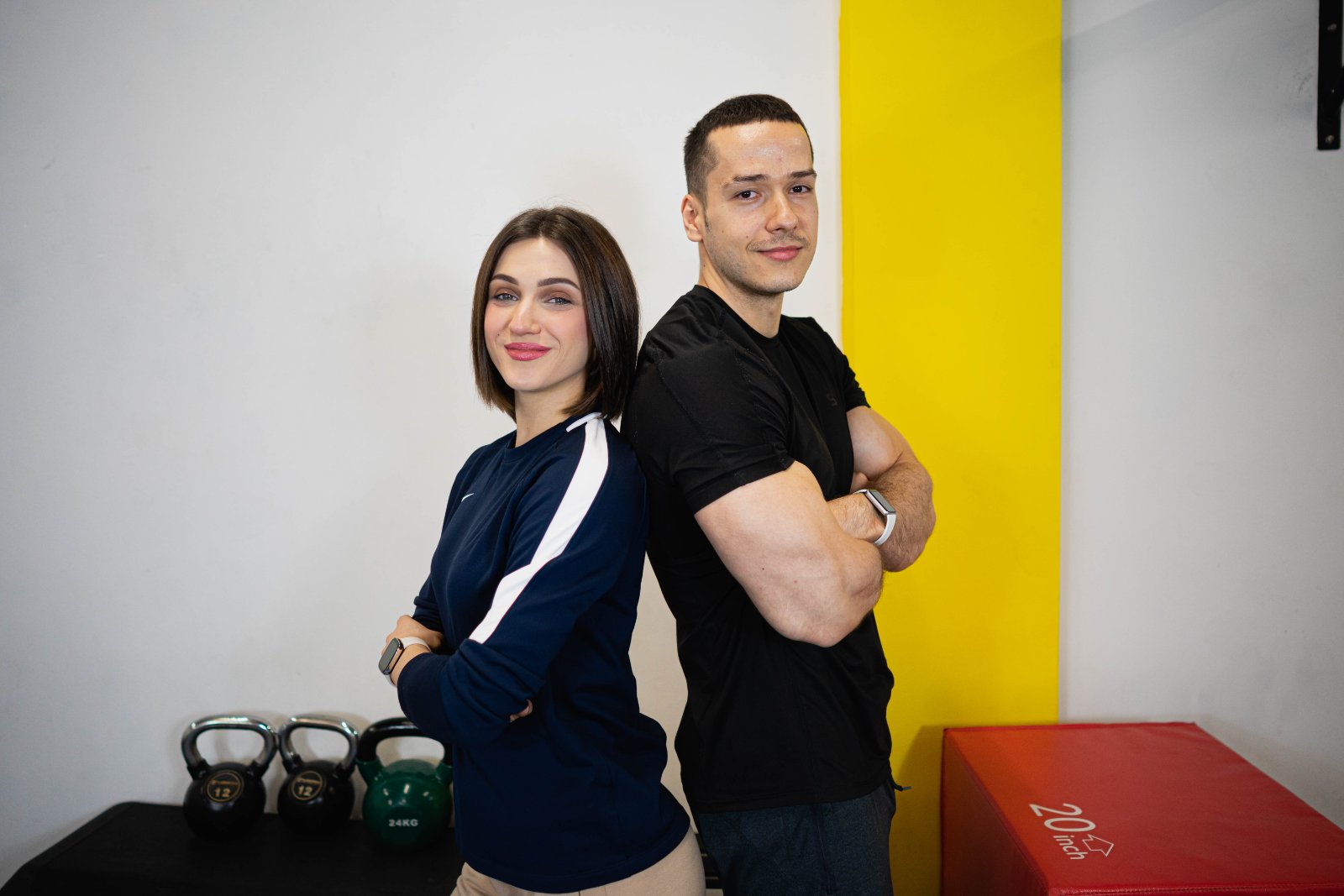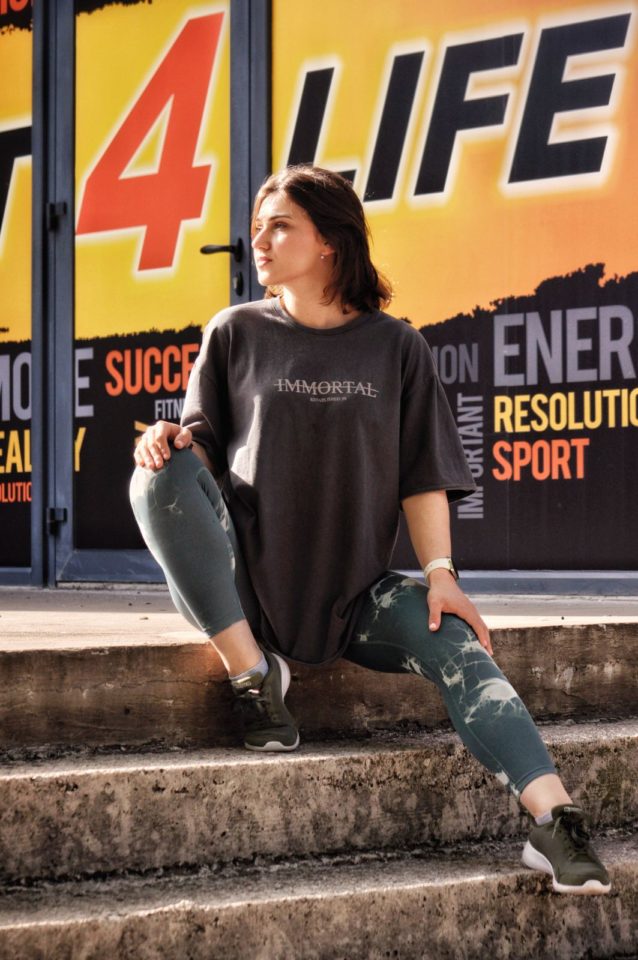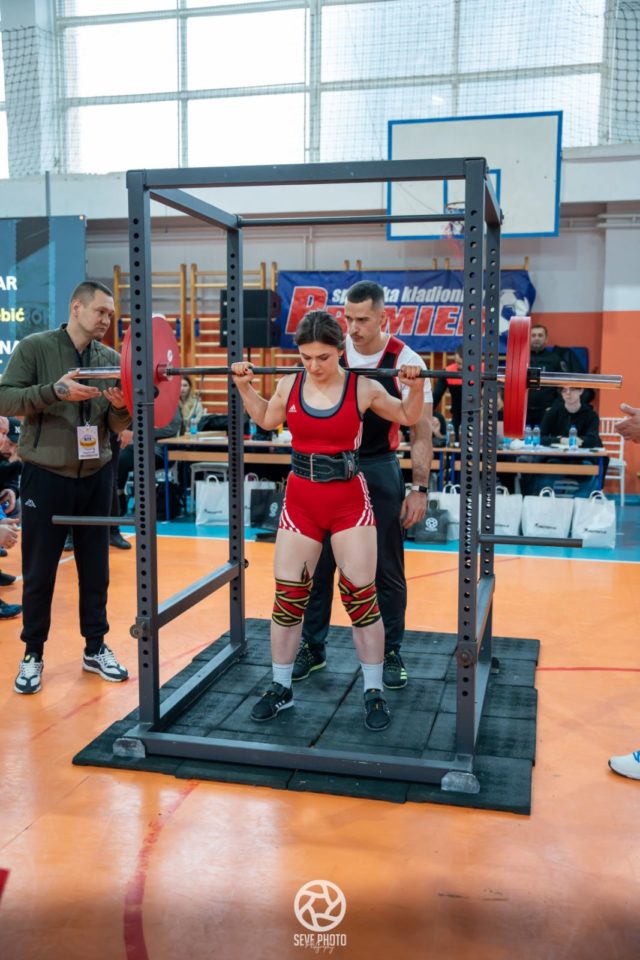
Twenty-five-year-old Samra Alebić from Konjic has been breaking world records and winning gold medals as the top competitor from Bosnia and Herzegovina in powerlifting—a sport that includes three disciplines: squatting, bench press, and deadlifting. With daily training, this young journalist and writer is able to lift 185 kilos, destroying prejudices that only men are strong.
As her greatest success in powerlifting, she singled out the WUAP World Championship, where she broke the world squat record of 165 kilograms in her bodyweight category (52 kilograms or less), and won first place in this category and absolute victory in the OPEN category.
Every competition has its own value, ‘weight,’ and special place in her heart. In addition to breaking records and winning medals, she also enjoys meeting fellow athletes in the sport and looks forward to powerlifting gatherings.

“The fact is that powerlifting is still not recognized as a popular sport, and it isn’t something that people have much knowledge about, unlike football, basketball, and similar sports. Many times, after I say that I do powerlifting, the question ‘What is that?’ immediately follows,” explained Alebić.
However, because this sport has become a lifestyle as well as one of her greatest passions, she is patient and happy to tell people more about it.
“If we want the sport to become more famous and popular in Bosnia and Herzegovina, we young people have to get involved and, as our country’s sport ambassadors, compete to show our talents and strength to other countries in Europe and the world,” Alebić said.
Although powerlifting is a predominately male sport, she notes that the number of female powerlifters has increased in recent years, which makes her especially happy.
“The stigma that only men are strong and capable of this sport is now, at least in my opinion, far behind us. Male colleagues are very supportive at competitions. We all cheer for each other, and women are happy to introduce them to their daily workout and strength training, which is a pleasure for me to see as a coach,” said Alebić.
She has not been able to imagine her day without the gym for more than four years. She began to participate in powerlifting competitions two years ago, at the urging of her boyfriend, friends, and acquaintances.

“I immediately ‘threw myself into the fire’ and went to the world championship in Austria, where I won fifth place. However, a re-match followed and I really wanted to improve my ranking, to have my name on some record, and I did that in September, in the Czech Republic,” Alebić explained.
She believes that any dream can become a reality if we work hard enough and believe in ourselves and our abilities. “In addition to believing in myself, I’m lucky to be surrounded by people who also believe in me, and I’m very grateful for that,” she added.
She explained that preparing for competitions can be difficult and exhausting, and it consists of certain stages. Her boyfriend is also her trainer, and together they figure out what is needed to improve her performance.
“During the preparations, there’s a greater focus on the three disciplines I compete in—bench press, deadlift, and squatting—and their variations than on the other exercises,” she explained, adding that there are easy, medium, and heavy trainings, each with its own timing.
So far, her personal bests are 185 kilograms (x 2) in squatting, 160 kilograms in the deadlift, and 67.5 kilograms on the bench press.
“I would like to squat 200 kilograms soon. I would also like to improve my other disciplines, but to what extent, we’ll see,” said Alebić.
She believes that genes have also been a major factor in her success, recalling that at her first training sessions she squatted 70 kilograms, which “was above average at the start.” Regardless, she says “there’s no room for slacking off,” noting that someone more diligent can train smarter and more efficiently and ultimately outperform those with a genetic advantage. Therefore, as she said, it is important to know how you train and how to best use and direct good genes.
Asked whether she would recommend powerlifting to others, Alebić says: “If you think you have what it takes for this sport, if you find yourself in it, go for it! We’ll see each other in the gym, and then maybe at the competitions. There are no limits.”






